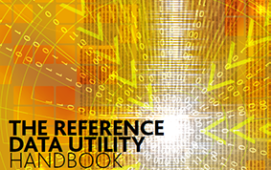
Bananas aren’t the first things that come to mind when considering how to gauge the effectiveness of an ESG investment thesis. But the link between the price of the humble tropical fruit and historical economic events are among the unlikely findings of a 11-month-old artificial intelligence-based modelling company that’s helping sustainability investors look at their portfolios in new ways.
Estimand AI, a financial risk intelligence company run out of Raleigh, North Carolina, has begun examining the impacts of climate and social trends on investors’ assets using a causal AI model. It has been built on sound mathematical processes used to identify associations between different datasets, providing investors with a powerful means of examining the risks and opportunities inherent in their portfolios.
Among the seemingly improbable associations that have been discovered in those datasets, and which are being applied to portfolio risk analyses, is the price of bananas and the state of the global economy. Bananas, the model found, are a very good indicator of the likelihood of economic stress.
“We thought there was an error in the model and I was trying to find the problem,” Estimand AI co-founder and chief executive Todd Moses told ESG Insight. “But it’s there, it’s like the price of electricity, which is an important factor in everything.”
New Wave
Estimand is among several companies that have begun applying the computational prowess of AI to investing and data analyses, including for ESG investors. The speed and accuracy of AI makes it an invaluable tool for research teams striving to optimise the sustainability of their portfolios.
The new wave of ESG-focused AI companies include Clarity AI and Alygne, which have extended or introduced services built on Machine Language (ML). EthicsAnswer and GaiaLens began rolling out Generative AI applications last year that deploy the sort of large language models (LLMs) that back the headline-grabbing ChatGPT app.
Such products are designed to accelerate the mining of insights from the huge volumes of data that ESG professionals must process and automate tasks that humans would struggle to complete.
Daily Additions
Formed in May last year, Estimand already has a handful of large financial institutions plugged into its model. With its data obtained from open sources, the company is adding new sets every day and currently has around 3,000. Its ESG-focused data is taken from natural-world monitors, such as weather information from the US’ weather National Oceanic and Atmospheric Administration (NOAA) and social data from the World Economic Forum (WEF).
Once causal relationships have been established between different factors, the model can make counterfactual, or “what-if”, analyses. For instance, using NOAA weather data, investors can identify what impact a hypothetical temperature increase in a specific part of the world might have had on the production of staple crops.
The graphs created from these calculations can be ingested into financial institutions’ own data research setups using a variety of common tools. This enables investors to test the impact of their own climate theses on the likely performance of assets in their portfolio under assumed conditions – including those likely to result from a changing environment.
“You can look at the investments that you want to make and see how they perform financially, while also seeing what their impact is in other areas, such as social areas and environmental areas,” Moses said. “You can find the ESG things to invest in that have the best returns or that are insulated from certain things, and you can also find those that have the best ESG impact,” Moses said.
Myth Buster
The bananas gauge is among the more interesting trends made by Estimand AI’s model. It found that the price of bananas remains stable within a narrow band except at times of “super catastrophic” events, such as during Covid. Over decades of data collected on their price, bananas have proven to be immune to inflation and climate, mainly because when one producer is affected by poor weather conditions, production has been increased elsewhere.
“It becomes this harbinger for economic catastrophe, something I’ve never heard anyone talk about it,” said Moses.
Among other findings is one that that suggests real estate investors have been labouring under a misapprehension about a key influence on the price of property.
The received wisdom is that the supply of homes has a huge impact on prices for homebuyers. Estimand AI’s model, however, has found no such link.
Instead, the price of property has been impacted historically more by the complicated interplay between multiple other factors, including the employment status of buyers and their ability to save, as well as the availability of mortgages.
Moses plans next to apply this disruptive technology to measuring the impact of news stories. More than simply a sentiment gathering tool (“if you only do that you would find the majority of new is negative”) Estimand AI’s dataset will examine how individual news items affect assets and financial events. It will do this by factoring in such data as the trustworthiness and reach of news sources, as well as the sentiment of reports.
“One of the things we found is, of course, not all news is equal,” said Moses. “What we’re trying to do with the news impact is show what’s real and what’s driven by an agenda.”
From seemingly dissociated and disparate datasets, Estimand AI is finding links in datasets that offer new approaches to sustainability investing.
“You can look at these different things for an investment decision, for a banking decision for an insurance decision and definitely for ESG,” Moses said.
Subscribe to our newsletter



